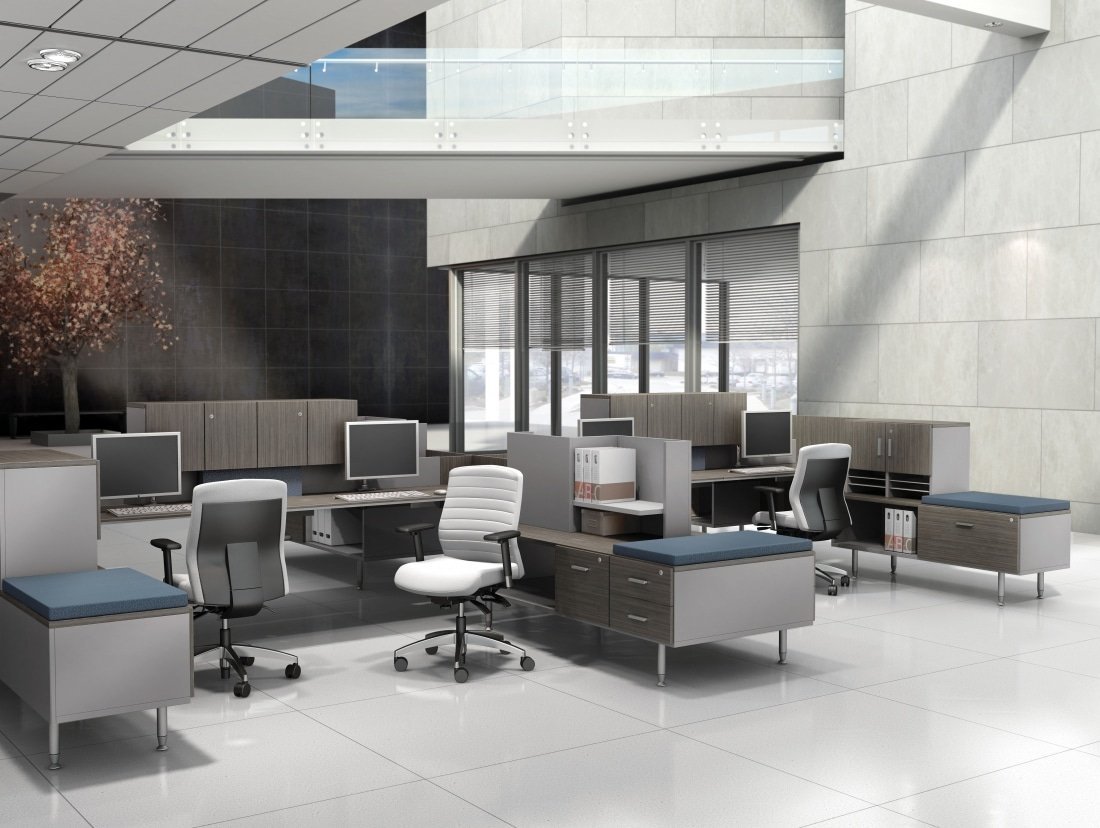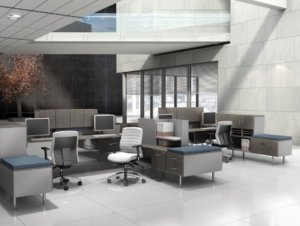Why Are Open Concept Desks Good for Startups?

Why are Open Concept Desks Good for Startups?
Open concept desks can be for more than individual work. Cubicles and other segregated desks discourage collaboration and nurture competition instead of teamwork. The result is a strenuous work environment benefiting neither employees nor the company.
Startup culture thrives on collaboration and teamwork, and open workspaces are ideal for fostering that culture. When someone needs a quick conversation with a team member, the ideal scenario is not walking to another room.

Still not convinced? (Or maybe you just like reading about desks.) Okay, let’s go more in-depth.
Eleven Ways an Open Concept Desk Will Benefit Your Startup
1. Increases Collaboration
Open concept desks enable employees to sit near coworkers with other jobs allowing them to learn more than just their specific tasks.
Many offices shift employee’s seats, so they are exposed to different functions of the business. This enhances the perspective of the workforce as they gain insight into various business functions. One of the many reasons startups prefer open concepts is that they can be a source of new and innovative ideas.
2. Creates a Melting Pot for New Ideas
Working alongside others with different jobs and different backgrounds will bring fresh perspective to your work. There will be times when your teammates can look at the challenges you face and approach it from unexpected angles. Equally, you can bring fresh insight to other’s problems as well.
An open concept workspace that encourages idea-sharing benefits the entire company. In the end, the whole should always be greater than the sum of its parts.
3. Enhanced relationships and interactions
When people collaborate and learn from others, it reduces the monotony of daily work. The interactions in an open office are far greater than an office with cubicles and walls. This can lead to team building and reflects in the work they do. Team members can identify each other’s strengths then divide tasks in a way that decreases the overall effort maximizing productivity.
4. Teamwork Instead of Competition
Be it intentional or not, too many of today’s workplaces value the individual over the group. This is apparent in the way most businesses are structured. Even startups commonly practice ranking workers and rewarding individual talent, which inadvertently encourages employees to compete against each other. The result is a culture that cannibalizes itself rather than working toward a common goal. Enter office politics, stage left.
Open concept desks give teams the chance to work with each other and endeavor to achieve common goals and objectives. Moreover, these types of office environments foster friendships and camaraderie within the workplace.
5. Improved Mental Health
Workspaces that foster collaboration show decreased stress and depression at the same time boosting overall moods in the workplace. In today’s anxious and stressful world, it’s essential to cultivate meaningful relationships both at work and at home.
6. Increased Energy
A career spent staring at the four small corners of an office or cubicle can drain you of your drive and motivation. To regain your energy, work with others. With open concept desks, employees can motivate one another and benefit from the fast-paced and motivated environment of typical startup culture.

7. Inexpensive Compared to the Alternative
From an employer’s perspective, buying 50 standing desks is considerably cheaper than setting up 50 cubicles. Beyond the cost of construction, you end up using office space to its maximum potential. A cubicle cost five to six times that of an open concept workstation and requires space that could seat two to four employees at an open concept desk system.
8. Flexibility
If you have available space, it is simpler to expand and rearrange when using open concept desks as you only have to add another desk or move things around. When using cubicles, however, they must be torn down to move around and constructed to add more.
9. Eliminates boundaries between staff
In the hierarchical structure, you must set an appointment to converse with senior management, but in an open office, you eliminate those boundaries. There is no wasted time walking between offices since everyone is in the same area.

10. Conducive to Productivity and Efficiency
Collaborative environments have been shown to bring out the best in people and groups. In a study completed by the Harvard Business Review regarding thriving at the workplace, Employees who worked in collaborative spaces scored 6 out of a possible 7 points – higher than their counterparts condemned to cubicles. It’s no mystery why companies are more often thinking outside the box – and outside the cubicle!
11. Consolidated Supervision
Because all the workers are in the same space, it is much easier to supervise as leaders are in continuous contact with the employees. This also allows dealing with issues faster.
What is best for you?
Knowing the advantages and disadvantages of an open concept office is critical. The decision will ultimately boil down to the nature of your business, office culture, values, and most importantly, your employees.
Even if the nature of your business is not conducive to an open concept office, (the need for privacy, dealing with sensitive information, the need for intense focus) many offices have found great benefit in having a space for collaboration. Having open concept desks for employees to use when not dealing with private issues or needing great focus can be beneficial for all the reasons listed above.

